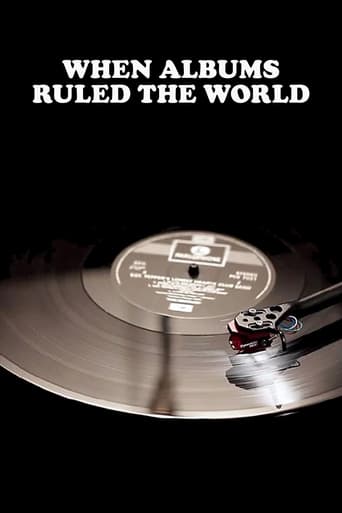Adela Ursachi
When Albums Ruled the World provides a pure, succinct view into a period that seems almost imaginary to those who have not experienced it, when the musical industry and recording were still in their infancy. Throughout the 90 minutes of this documentary, the viewer is taken on a wonderful trip to the past, where she bears witness to the tandem between the advancements of music and recording technology, at the core of which was the LP. It is fascinating to see how music and the music industry have been revolutionized by the LP in the short period of time between the mid 1960s and the late 1970s. The viewer is shown how the LP is tied to the exchange of feelings and musical expression between African-American, American and British musicians, which in turn lead to the birth of diverse genres, such as Fusion and Progressive Rock. The record has allowed musicians to move away from the Single format towards wider plains of artistic expression, which marked a shift from a culture of fast and easy consumption of songs to the creation of long conceptual albums. Furthermore, it goes beyond the music to look at the way in which identity was expressed through the album artwork. The advancements in musical expression allowed by the record called upon a new artistic conceptualization which unified music and visual arts through the record sleeve. However, the documentary does not leave out the business side of the music industry, clearly tracing the three-way symbiosis between records, business and radio. At an emotional level, it evokes a wonderful nostalgia through both the archive footage and music chosen. The snippets of interviews featuring musicians, producers and engineers who have been both influenced and influencing the music world during that era are perfectly selected and provide wonderful insight into the ideals that have kept the LP revolution in motion. I will conclude by saying that When Albums Ruled the World provides knowledge that is essential in understanding the dynamics of the music industry today while reviving the longing for a more personal, physical, material engagement with music which the LP provided.


